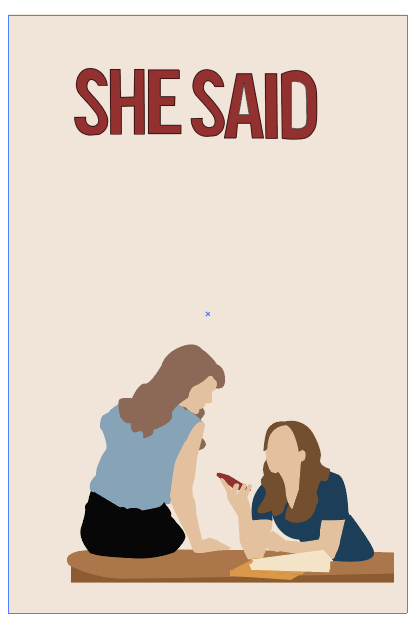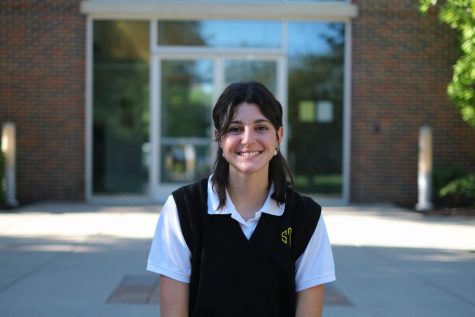“She Said” Says Nothing New
The intense docu-drama, “She Said” had all the potential to be an outstanding film but lacked the dialogue to carry it out.
December 9, 2022
It’s ironic how a movie surrounding the most intense subject matter could have the dullest dialogue imaginable but that’s exactly what happens in “She Said.”
The drama, based on the true story of The New York Times female reporters investigating an onslaught of Hollywood sexual assault allegations says nothing the world didn’t already know. However, watching “She Said” felt like the buzzer-beater attempt that falls ever so slightly short of the rim—it had the potential to be a phenomenal film yet lacked a certain “movie magic” to carry it out.
From a journalistic standpoint, the movie is a 10/10: scenes of fast-paced typing on keyboards mixed in with the classic “off the record” conversations make for a news reporter’s dream. If you’re part of the roughly 8% of Americans employed as a journalist, this movie is perfect for you; however, if you do not fit the niche target audience, save $12 and treat yourself to an extra peppermint mocha.
The movie follows an array of different storylines, a tactic with immense potential that is let down by its choppy transitions and seemingly random dialogue cuts. Carey Mulligan and Zoe Kazan star as a dynamic female journalistic duo, Megan Twohey and Jodi Kantor. Mulligan’s performance carries the movie: strong and rehearsed, she presents the audience with a heartwarming introduction to a feminist reporter suffering from postpartum depression in a world full of perverts and predators. Her counterpart, played by Kazan, is less memorable; whether due to the script or the performance, something feels off about the character who spends an unnecessary amount of screen time running her fingers through perfectly styled hair.
The extricating factor of the film is the gorgeous visuals and incredible cinematography. We get flash cuts from present-day reporting to past encounters of women with Harvey Weinstein: younger actresses with frightened looks on their faces or images of an ominous hotel lobby with a spine-chilling voice-over of one of Weinstein’s interactions with a younger secretary leave the audience members feeling like they need to go home and take a shower to wash away the filth of the situation. The climax of the film centers on Kazan’s character meeting with a source in dimly lit restaurants reminiscent of a mafia commission; dark red hues and oak tables lend a musty feeling of uncertainty, adding to the mystery of the film.
If there is one thing “She Said” says to the world, it’s that the film industry needs to find a new way to present journalistic stories in the media. The expansive dialogue and in-depth interviews are boring to watch, something “All the President’s Men” and “Spotlight” already told us. Conversely, the feminist aspect of the movie offers up a new viewpoint for the audience: every man in the film—minus the heroic editor of The Times—is full of misogynistic responses that would make any female viewer feel uncomfortable. Interestingly enough, this is off-put by the random amount of scenes Mulligan’s character spends eating: a wrap, a muffin, an iced caramel latte. Honestly, if the director had put as much time into creating the right cinematic mood as they did into picking out aesthetic foods for the characters to eat, the movie would have exceeded all my expectations.




